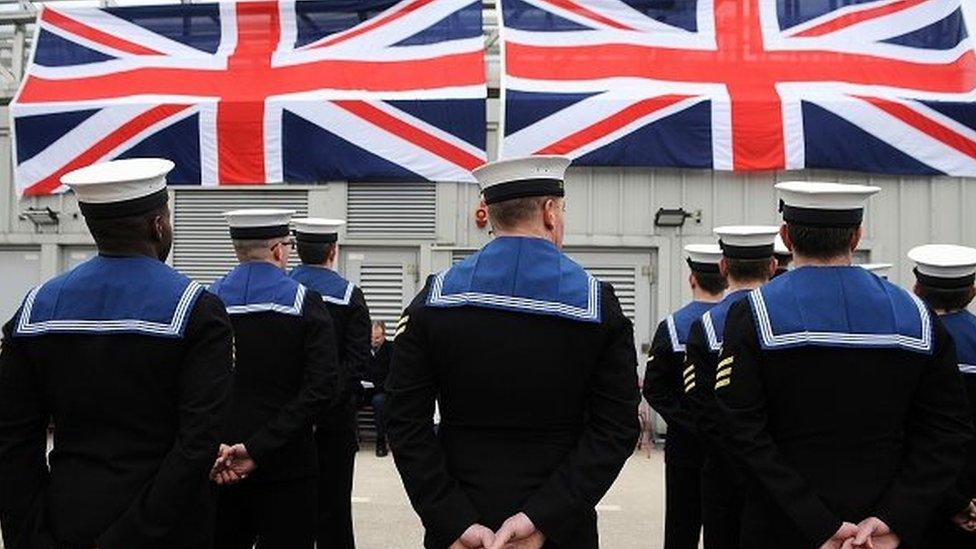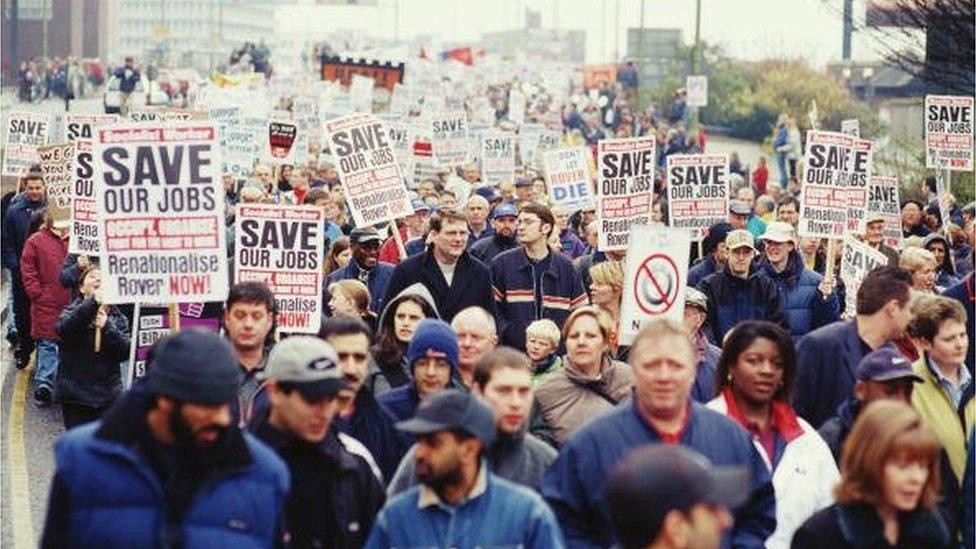Former Navy chief says 'unforgiveable' if UK steel production ends
- Published
Most large industrialised nations have their own steel-making capabilities for strategic reasons, says Admiral Lord West.
The former First Sea Lord and Chief of the Naval Staff has told the BBC that it would be "unforgiveable" if large scale steel production ended in the UK.
Speaking as the fate of thousands of steel jobs hangs in the balance, Lord West said that UK production was vital for the defence sector.
He argued that all countries that are members of the United Nations Security Council had major steel plants to support their defence industry.
"I cannot think of another major military power that doesn't have its own indigenous steel production capabilities," Lord West told the BBC.
"Certainly none of the members of the UN Security Council have jettisoned that capability and I find it extraordinary to think that we as a nation would do that."
Lord West, the former security minister in Gordon Brown's government, and now a member of Parliament's Joint Committee on National Security Strategy, said that having an indigenous capacity was vital.
"Steel is fundamental to industrial output," the Labour peer argued.
"It's seen as one of the key things that a nation produces.
"It's fundamental to the production of cars, warship building, ship building more widely and the construction industry. The nuclear power stations being built will have an awful lot of steel in them.

Steel is fundamental to the production of defence and other products, Lord West says
"And any nation with any clout of any significance has its own steel industry, because any nation of any clout - and we are the fifth richest in the world - [well] I'm afraid in the next 50 years there might well be people who don't like Britain in that position, and who knows what's going to happen.
"And it's important we have our own indigenous capability so that when push comes to shove and our backs are to the wall we can still produce things vital to ensure the survival and safety of our population."
Senior figures in the defence industry have told me that steel production in the UK is "preferable" to sourcing supplies from abroad and that the manufacturing skills base in the UK would be undermined if the steel industry was wound down.
Some 94% of the steel being used to build the UK's two new aircraft carriers is British made.
But despite the calls for support for the mass steel industry, some business leaders are urging caution when the government considers how best to react.

Workers from the Longbridge Rover plant taking part in a rally in 2000
Simon Walker, director general of the Institute of Directors, told the BBC the MG Rover debacle - when the government financially supported the retention of car production at the Longbridge plant which later collapsed - showed that large amounts of money can be wasted trying to defy economic gravity.
"There's always a temptation for politicians to intervene when this many jobs are concerned," he said.
"I don't think it is the right approach.
"There is a future for British steel but it's not about basic steel products.
"It's about advanced high tech products like vessels for nuclear reactors.
"British manufacturers consume far more steel than is produced. It's a far bigger part of that economy, and I'm afraid cheaper steel is in the interests of those industries.
"So my focus would be on helping the people who have been affected and retraining them, reskilling them into other kinds of jobs, because I'm afraid this just isn't the future of British manufacturing.
"The government poured tens of millions [of pounds] into MG Rover when that looked as if it was going to collapse in 2005 and what do you know, it did and the money was all lost.
"We're talking a million pounds a day that is being lost [by Tata Steel at Port Talbot].
"You can't just say the tax payer will pick up the tab. It's a temptation for politicians but it isn't the right thing to do."